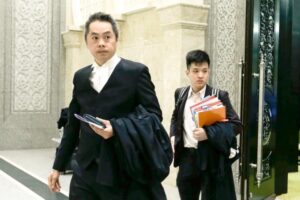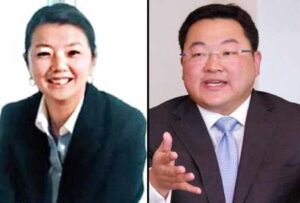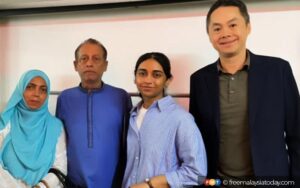By Gan Pei Ling | The Nut Graph
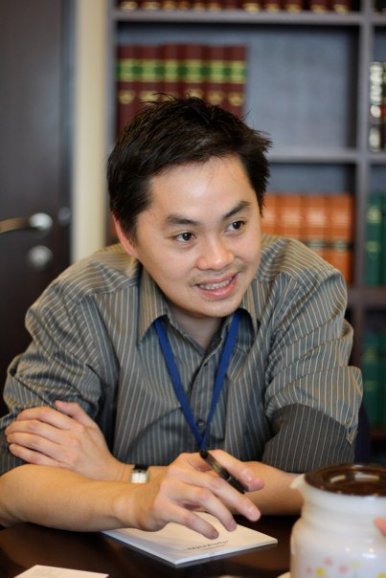
Lawyer. Activist. Trainer. Loyarburokker. Edmund Bon wears many hats in his quest to champion human rights.
Bon is currently the Bar Council’s Constitutional Law Committee chairperson. This is the committee that, since 2009, has been running the MyConstitution campaign to popularise the Federal Constitution among Malaysians. Bon and his contemporaries — Amer Hamzah Arshad, K. Shanmuga, Fahri Azzat, Sharmila Sekaran, and Edward Saw — also started the LoyarBurok blawg in 2006 which highlights legal issues of public interest. They published their first book, Perak: A State of Crisis, in 2010.
Bon says their next plan is to create a rakyat centre, also called the Malaysian Centre for Constitutionalism and Human Rights, in Bangsar: “We want to have a laman bersantai where people can use the place for free, lepak there, hold events, start and create a culture of discourse.” Their main aim is to mainstream human rights, especially among young people.
In this Dec 19, 2010 interview in Kuala Lumpur, which had to be updated in January 2011 after Bon found out more about his ancestry from his parents, Bon shared stories from his past and future hopes for the country.
TNG: Where and when were you born?
Edmund Bon: I was born in Kuala Lumpur (KL) on 6 June 1974.
Where did you grow up? Are there any childhood stories that you remember till today?
I grew up in Ulu Kelang, near the zoo, then Ampang. I had a boring life then…[but] when I was two or three, a nanny from another house put something like 10 liddy sticks into my ear and injured it.
You can remember this even though you were so young?
My parents had to send me to the hospital and they keep repeating the story.
We’re all pendatang. Can you trace your ancestry?

On my father’s side, my grandfather came from Wen Chang City in Hainan, China. He died before I was born but my father told me he came to Malaya in the 1910s. My grandmother was from Canton and she was his second wife. They had three boys. My father was the second son. He was born during World War II.
When my grandfather went to register my father’s birth at the police pondok in Seremban, there must have been some miscommunication and the constable wrote his surname as “Bon”. Actually a closer English pronunciation of my Chinese surname, which means cloud, should be “Yun” or “Woon”.
All my father’s siblings had different spellings for their surname.
During the Japanese occupation, my grandfather sent my father and his elder brother back to China to be exposed to life in the village and to acquire some Chinese education. But life in the initial years of the communist liberation in China was chaotic. So my grandfather brought them back to Malaya in 1954.
My father became a teacher before joining the Human Resources Ministry as a labour officer. He later left the civil service to join a multinational petroleum company. He met my mother during a gathering in a friend’s house in the early 70s.
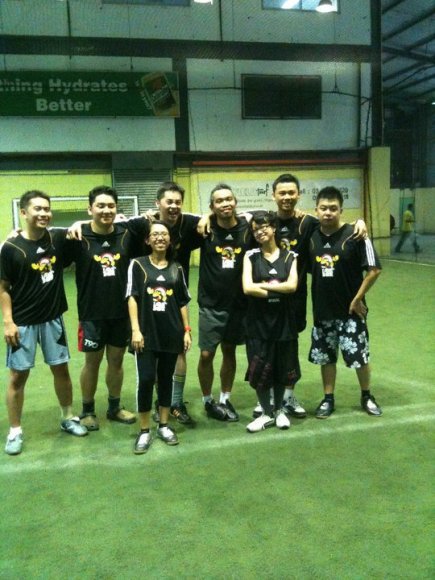
My mother was born in 1946 in Taiping. She was a music teacher in government schools until she set up a music school in KL. I used to follow her to the private studio and learnt the piano there. My mother was also the principal of Maryvale Good Shepherd kindergarten. Her parents were both teachers.
My grandfather was the first male to be appointed as a headmaster in a girls’ school – Zainal Girls’ School in Kota Baru. He was also very active in sports and one of the rugby pioneers in the country. His mother was a Hokkien Nyonya from northern Penang. She worked very hard, by selling Nyonya kuih, to support his education through to Singapore’s Raffles College.
As for my grandmother’s father, he came from Kwang Tung, China to Penang when he was 16. He had a shoe business and used to travel far and wide on an old bicycle to get business from the Europeans in the estates, sometimes up to 60 to 70 miles on alternate days.
Regardless of my ancestry, I am a thorough-bred Malaysian and have allegiance only to the country of my birth — Malaysia.
What about school? How was it?
I went to Methodist Boys’ School in KL, for primary and secondary [education].
I was a prefect, a boy scout, and a member of groups like the Tennis Club, Christian Fellowship, and Literature & Dramatic Club, so I was quite with the establishment.
After PMR, I wanted to do arts. I didn’t like science, but my parents didn’t let me.
During Form Four and Five, I became more anti-establishment. We had a very strict headmaster. I remember he was fierce and caned those with long hair and I also got it.
Were you aware about the concept of race then?
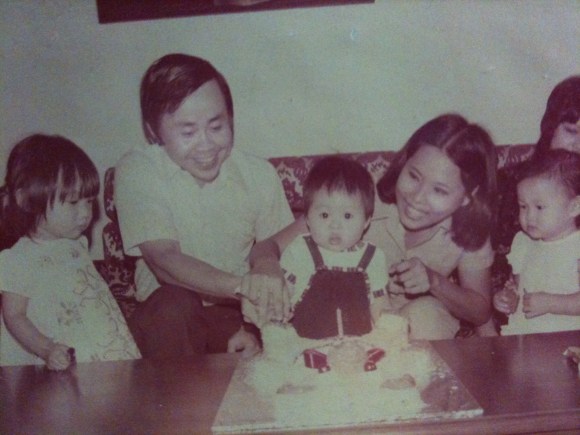
I was aware but it wasn’t something I cared about. One of my best friends since Standard Two is this guy called Roshan Thiran — he’s the CEO of Leaderonomics. But we had many Malay [Malaysian] friends, too.
It didn’t matter, as long as we had the same interests.
So you were in science stream. How did you end up becoming a lawyer?
Oh, that was by accident. I didn’t plan to become a lawyer.
During my childhood, the Indiana Jones movies were very popular. Being young and impressionable, I wanted to be an archaeologist. And then when I saw [fire fighters] put out fires, I wanted to be a [fire fighter], too.
And when I was young, my nanny used to tell me I should never become a lawyer because “lawyers always cheat and lie for money”. We used to call her Ah Che. I was very taken in by her repeated statements so it never crossed my mind [to become a lawyer].
It was not until I did A-Levels that I decided to do law. I was offered a scholarship to do A-Levels at Bellerby’s College in Brighton, UK after SPM. Not knowing what I wanted to study in university, I took economics, English literature, and law. Law was the easiest and most interesting subject to me, and many of my college friends were going to do it in university, so I read law, and vowed to prove [my nanny’s impression of lawyers] wrong.
After I became a lawyer I explained to Ah Che and she understood. Her words still ring in my ears every time I get tempted.
Were there any particular events that jolted you to become more socially and politically aware in England?
The education system there changed me. I remember my dad used to ask me to raise my hand and ask at least one question in class each day in school in Malaysia. I was usually shot down. But it was different in the UK. We were encouraged to think, speak up, and ask questions, including stupid ones.
Another major influence was the subjects I read in law. At that time I read a lot about the European Convention on Human Rights, and there was the European Court of Human Rights where governments could be sued for human rights abuses.
We learned about the court cases and the judges were very pro-human rights. It made me very excited about human rights law and I thought it was the same in Malaysia. I didn’t know anything about (Tun) Salleh Abas or the 1988 judicial crisis. I only found out when I came back.
When did you come back? What happened after that?
1997. I have told this story many times already. During Reformasi in 1998/1999, many people were arrested in the street demonstrations. (M.) Puravalen, Ragunath (Kesavan), and (R.) Sivarasa were leaders at the Bar Council’s Legal Aid Centre in KL and they asked for help to defend the demonstrators. So that’s where I started.
My employer Chooi Mun Sou encouraged us and still does.
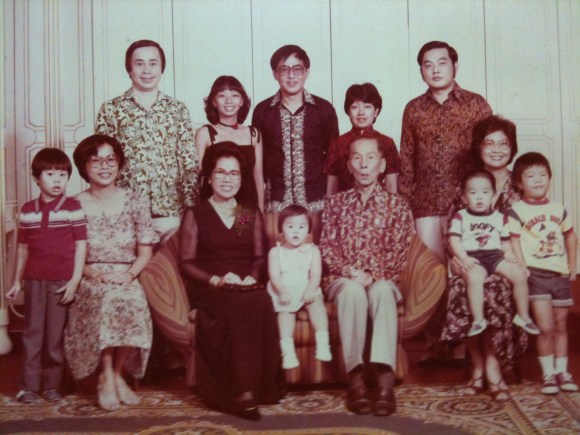
Later, I followed Sivarasa and Christopher Leong, a partner in the law firm I’m with, to Kamunting, for the habeas corpus application of the Reformasi activists detained under the ISA (Internal Security Act).
I was assigned to record Hishammuddin Rais and Tian Chua’s stories. That’s where all the sensitisation about human rights activism really started. Then people like Amer, Shanmuga, Fahri, Edward, Latheefa Koya, and I started to move together. There were others from this Reformasi generation of lawyers, too.
If it weren’t for the Reformasi period, people like us would not be doing what we are doing now. If you ask me why am I still doing what I do? It’s because I still believe that there are many human rights problems but with the correct people and strategy we can change things for the better. And it’s fun!
Are there any family stories that stuck with you?
When I just started work, my dad used to tell me about how pervasive the NEP (New Economic Policy) was in Malaysia, including in the multinational petroleum company he worked in.
Once, his American boss recommended him for a promotion but his department overruled the decision because the post was reserved for Malay [Malaysians]. So my dad was not promoted.
What are the changes you hope to see in Malaysia in future?
I think we should get rid of our obsession with race. We are all Malaysians. Political parties should be based on political ideology, not race.
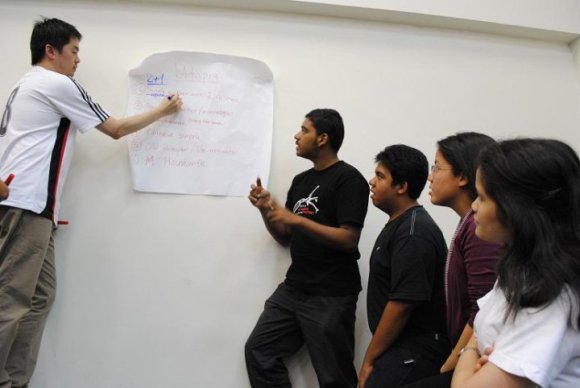
The current political landscape in Malaysia is extremely polarised. You are either for Barisan Nasional or Pakatan Rakyat. It has turned into a zero-sum game. More attention is being paid to the parties or political personalities than issues. We may see more racial and religious rhetoric being raised at the next general election at the expense of real issues. Many people don’t realise you can be political, but need not be politically partisan.
I want to see a government that really listens and acts to uphold the rights of every Malaysian particularly those who have been marginalised.
[Also] our education system needs to be run by experts and not politicians. We are not able to compete with the rest of the world.
I would like those who are elected to be scrutinised more on their performance, conduct, and pledges. A new social movement combining all the major civil society groups should lead this initiative.
The youth should be mobilised and empowered as part of the “voter bank” to demand and sustain good practices for future elections. A sustained campaign for a number of years will surely lead to positive changes in the way politicians handle elections.
The book Found in Malaysia, featuring 50 interviews plus four previously unpublished ones with Datuk Zaid Ibrahim, Tan Sri Rafidah Aziz, Datin Paduka Marina Mahathir, and Ramli Ibrahim, is available at all good bookstores for RM45.
Source: https://thenutgraph.com/%E2%80%9Cthorough-bred-malaysian%E2%80%9D/. Archived at https://perma.cc/5ADA-KWN3.

